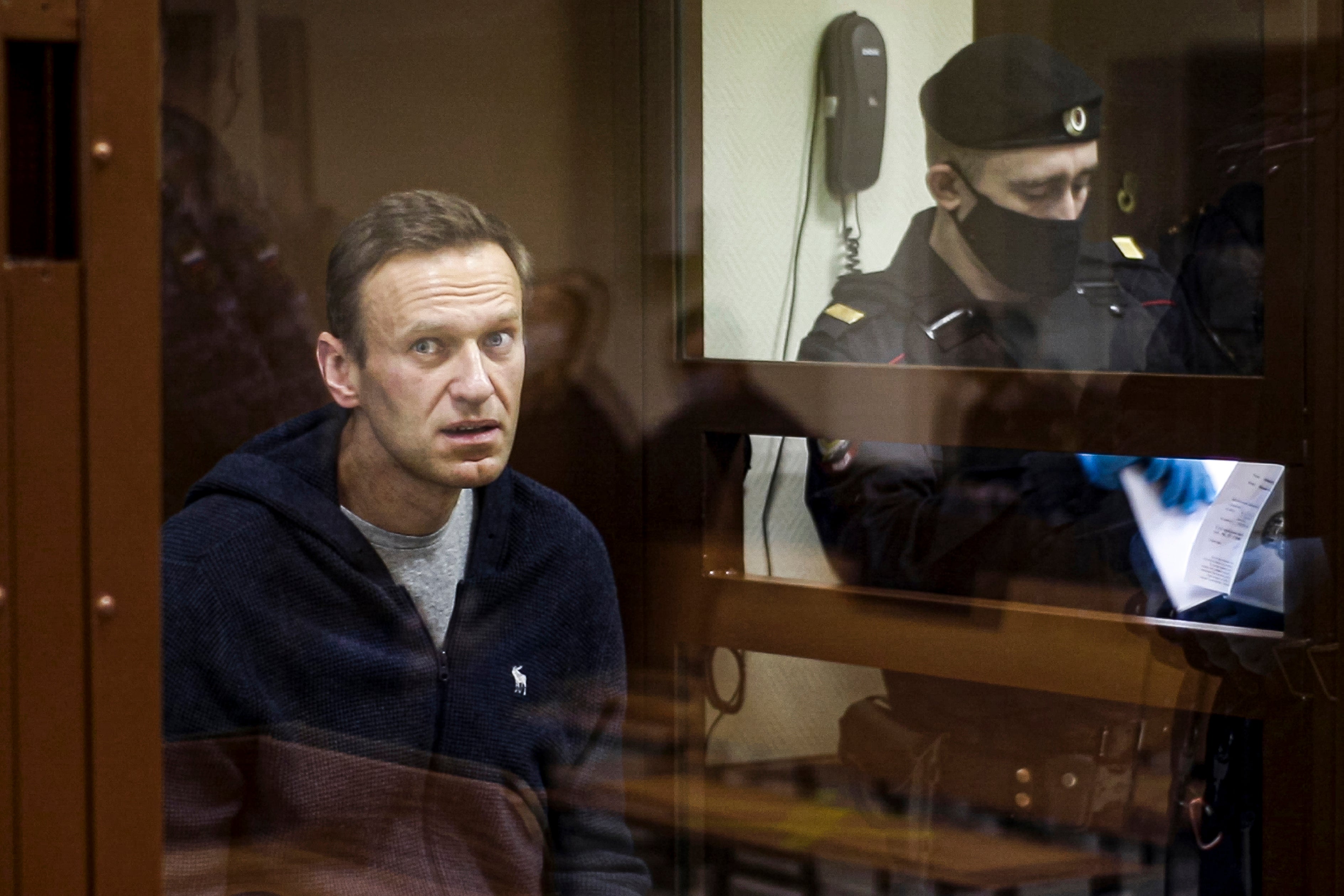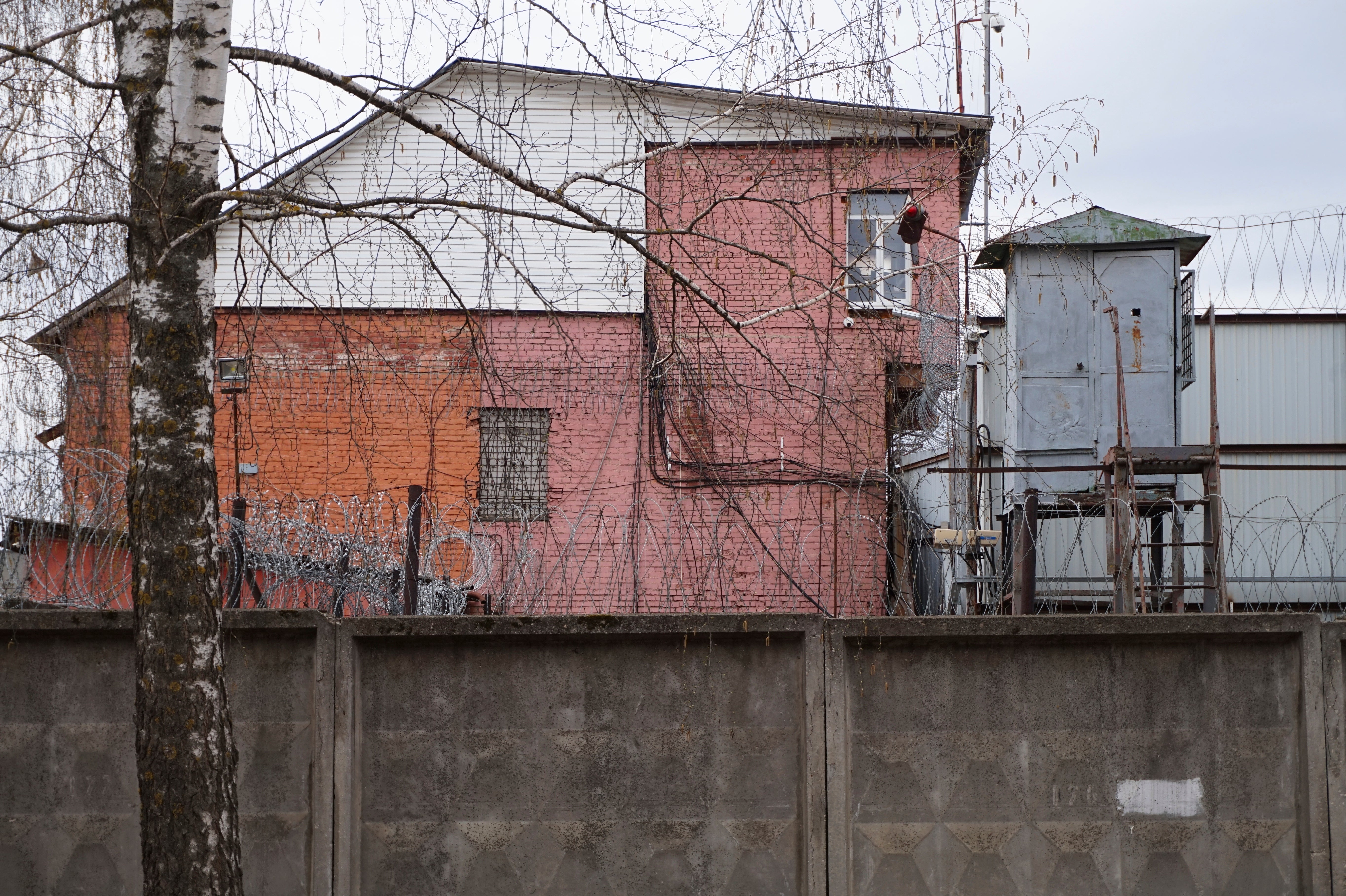Over a hundred join Alexei Navalny hunger strike ahead of anti-Putin protests

Your support helps us to tell the story
From reproductive rights to climate change to Big Tech, The Independent is on the ground when the story is developing. Whether it's investigating the financials of Elon Musk's pro-Trump PAC or producing our latest documentary, 'The A Word', which shines a light on the American women fighting for reproductive rights, we know how important it is to parse out the facts from the messaging.
At such a critical moment in US history, we need reporters on the ground. Your donation allows us to keep sending journalists to speak to both sides of the story.
The Independent is trusted by Americans across the entire political spectrum. And unlike many other quality news outlets, we choose not to lock Americans out of our reporting and analysis with paywalls. We believe quality journalism should be available to everyone, paid for by those who can afford it.
Your support makes all the difference.Scores of Russians have joined a hunger protest in support of jailed Kremlin critic Alexei Navalny’s bid to be seen by civilian doctors.
Mr Navalny, now three weeks into his own hunger strike, is reported to be in a serious and deteriorating condition, with blood tests indicating renal failure and the possibility of cardiac dysfunction.
The Navalny camp is calling for nationwide protests on Wednesday evening.
Nearly 500,000 have signed up online to indicate their willingness to take to the streets – but with the Kremlin promising a fierce crackdown it’s unclear how many will turn out.
Ella Kesaeva, the most prominent of those joining the coordinated group hunger strike, told The Independent that authorities’ lack of concern had pushed moderates like her towards radical protest.
Better known as the head of a group of survivors of the 2004 Beslan school siege – two of her own family were among 333 dead in the terror attack and botched rescue attempt – the reluctant activist said she joined the protest when she saw the "parallels" of her family’s situation and of Mr Navalny’s.
"We were held as hostages, and he is a hostage," she said. "I saw what this regime was about in 2004, when the tanks opened fire on the school, and I begged them to stop. Now, perhaps, the rest of Russia is waking up.”
Russian authorities continue to insist Mr Navalny’s condition is “satisfactory”, but in an unusual move transferred him to a medical facility in another, equally notorious prison colony on Sunday. On Tuesday, a spokesperson for the Kremlin refused to field any questions about his wellbeing, referring all inquiries to the prison service.
Ruslan Shaveddinov, a close Navalny associate, told The Independent that such treatment suggested Vladimir Putin was intent on “finishing the job he started in August”, a reference to Mr Navalny’s nerve agent poisoning. “Whatever happens, Putin is responsible.”
The activist added the Navalny camp had no direct role in organising the group hunger strike, but generally supported its aims.
At the time of writing, 109 Russians had declared participation in the hunger protest on a dedicated Facebook page.
Nikolai Formozov, creator of the Facebook group, said the strikers came from the widest range of backgrounds and cities. "From Vladivostok to Yaroslavl to St Petersburg, I can’t keep up,” he said. One man had joined the hunger strike because a physical disability prevented him from going out onto the streets to protest, he added.
A microbiologist by profession, Mr Formozov said he began his own no-food protest as a way of communicating with Mr Navalny. He had written ten postcards to him in jail. This was the equivalent of number 11. "I ran out of words to describe what I feel about what is going on," he said.
The Kremlin has indicated it has no plans to change its hardline position denying Mr Navalny access to independent doctors. At his daily press conference, spokesperson Dmitry Peskov brushed aside international demands that the Putin nemesis is granted medical access by rejecting what he described as "anti-Russian psychosis".
It is not only rhetoric that has been sharpened ahead of Wednesday’s rallies, with authorities applying a multifaceted pincer operation on Mr Navalny’s political infrastructure.
Last week, Mr Navalny’s campaign was hit hard with the appearance of the personal details of hundreds of thousands of supporters. The leak from Mr Navalny’s campaign website, which contained not only names and emails of those intending to protest, but additional information such as place of work and address likely sourced on government databases.

In some cases, individuals were reportedly sent warnings that employers would be informed if they attended protests.
Leonid Volkov, Mr Navalny’s chief of staff, described the data leak as the work of a "rat" in their organisation.
Even more damaging to the Navalny camp is an attempt from Moscow state prosecutors to declare his organisation extremist – on a level with Isis and Al-Qaeda. So sensitive is the case, prosecutors have asked for it to be classified and held in secret next week. There seems little doubt prosecutors will be granted their wish, and Mr Navalny’s operations will be outlawed.
That makes Wednesday’s rally somewhat of a make-or-break for the Putin critic’s team; a final display of strength before a radical reorganisation of their activities.
Mr Shaveddinov admitted the developments represented a "brutal" attempt to outlaw opposition to Vladimir Putin. But neither he nor his colleagues would be cowed from the task in hand – or deterred from their intentions to take part in parliamentary elections in September.
"They want to push us into the underground, like a terrorist cell, but that won’t happen," he said. "We’ll continue to keep things public, to take part in politics, to take part in elections, but how exactly or what the future holds no one can say."
Join our commenting forum
Join thought-provoking conversations, follow other Independent readers and see their replies
Comments